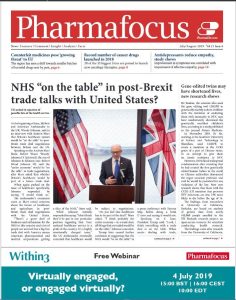Savient plays down gout drug manufacturing problems
pharmafile | January 11, 2011 | News story | Manufacturing and Production, Sales and Marketing | Krystexxa, Savient, biologic manufacturing, gout, manufacturing compliance, pegloticase
Savient Pharmaceuticals has reported that some production batches of Krystexxa, its recently-approved second-line treatment for gout, have failed to meet quality standards just as the company is focusing on rolling out the product.
Krystexxa (pegloticase) was approved in the USA in September and is a pegylated recombinant mammalian urate oxidase that is used for controlling elevated uric acid in the blood, the defect which leads to the painful symptoms in gout patients. A preliminary launch took place at the start of December 2010.
Investors reacted with concern on news of the batch failures, but the downward pressure on Savient’s share price proved short-lived once the company released a statement indicating the problems “are within normal industry failure rates experienced for the commencement of biologic commercial manufacturing”.
The company says it has enough Krystexxa inventory to supply the anticipated US market demand for Krystexxa through the first quarter of 2012, and insists it is still on track to introduce the drug on a wide scale in the USA in the next few weeks.
It does however expect a short delay in European filing until the end of the first quarter of 2011, despite having secured a green light from the Paediatric Committee (PDCO) of the European Medicines Agency for its paediatric investigation plan (PIP), a condition of EU approval.
The offending batches were made by the company’s contract manufacturers, including Merck Biomanufacturing Network (formerly Diosynth) and an unidentified Israeli firm.
In the case of the Israeli firm the cause of the failures has been identified and addressed – with the help of an external consultancy firm – and two batches have now been made which meet specifications.
The company has however concluded the manufacturing validation campaign at Merck did not work effectively and will have to be repeated at a cost of around $10 million over the next two years.
Phil Taylor
Related Content

Read the July/August edition of Pharmafocus online now!
The latest monthly edition of Pharmafocus, the July/August issue, is available to read for free …

Ironwood returns US Zurampic rights to AstraZeneca, announces operational cuts
Ironwood Pharmaceuticals has revealed that it has taken the decision to hand the rights for …

The July/August issue of Pharmafocus is now live!
The new July/August edition of Pharmafocus is now available to read online.








